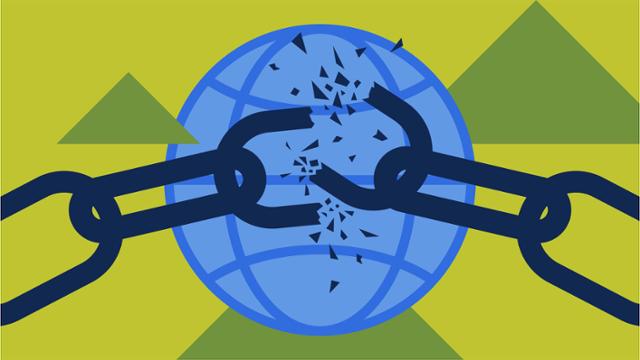Fighting back for trafficking victims
RESEARCH & INNOVATION
When she was 9 years old, Richmond Law student Amanda Short was nearly a victim of human trafficking.
She was visiting her mother’s family in the Philippines when her parents befriended a couple who claimed to be Christian missionaries. The woman they met tried unsuccessfully to separate Short from her parents. When they reported the failed kidnapping to the authorities, Short’s parents found out the couple had been smuggling girls out of the Philippines and into the Middle East.
Short didn’t fully process what had happened until she was in high school, when she decided to dig deeper and do her own research. That moment of realization also set off an interest in advocating for victims and preventing others from being trafficked.
She started by speaking out at local events and working with anti-trafficking nonprofits. A major turning point came when she began volunteering with the Northern Virginia Human Trafficking Initiative in 2017 and accessed training from the FBI about trafficking in the U.S. One year later, she became a victim advocate, offering support by attending doctor’s appointments, accompanying victims to the grocery store, or just meeting them for coffee.
Her interest motivated her decision to pursue law school, and Short hopes to eventually work as a federal prosecutor, possibly with the Department of Justice’s Human Trafficking Prosecution Unit where she interned this past summer. She assisted with legal research and writing on labor and sex trafficking cases that were either being investigated or preparing for trial.
“We take a very victim-centered approach,” Short said. “After a person has been through so much trauma, it’s hard to get them on the stand or get them comfortable enough to work with you. Everyone has their own story, and you just have to be able to understand that.”
Short, who will receive her law degree in the fall, is one of several Spiders who are working to advocate for victims and bring an end human trafficking.
As a field office director for International Justice Mission (IJM), Andrew Wasuwongse, a 2006 Jepson School of Leadership graduate, works with government partners to protect victims of human trafficking in Thailand. Earlier this year, he attended a trial where Cambodian men formerly enslaved in the Thai fishing industry testified against their trafficker.
“These young men had been sold onto Thai fishing boats, subjected to hard labor and physical and verbal abuse, and threatened if they sought release,” Wasuwongse said. “They escaped when their boat docked in Malaysia. When our IJM social worker first met them, they were very quiet. Two years later, they were confident and able to testify against their oppressor.”
“Once I learned about the injustice of human trafficking, I had a responsibility to do something about it.”
Wasuwongse was first introduced to human trafficking — and the work of IJM — as a student at Richmond when he read the book Good News about Injustice by IJM founder and CEO Gary Haugen. He pursued an independent study in his father’s native Thailand in 2005, then returned a year later for a one-year internship with IJM. In 2014, he landed what he described as his dream job as the Southeast Asia program manager at IJM.
“It is wonderful to work on an issue I really care about,” Wasuwongse said. “Once I learned about the injustice of human trafficking, I had a responsibility to do something about it.”
Like Wasuwongse, many students first learn about human trafficking while at Richmond. Monti Datta’s Sophomore Scholars in Residence course, Human Rights and Modern-Day Slavery, offers a deep-dive into the nature and origins of modern slavery.
Datta also weaves his own research on human trafficking into the SSIR and other courses. Currently, he is investigating the links between human trafficking and militarized disputes around the world, from 1989 to 2016. He and other researchers have created a collection of data, “Contemporary Slavery and Arms Complex,” which is slated for publication in the Journal of Peace Research next year.
Whether he’s looking at instances of slavery and trafficking throughout history or in the present day, Datta seeks to elevate the narratives of formerly enslaved people in an effort to learn directly from their stories. He said the modern anti-human trafficking movement is often led by privileged elites who can’t fully understand the experiences of people who have been victimized and assaulted.
“If you have a human trafficking survivor — say a child soldier in West Africa — and tell them they’re free,” he said, “they’ll probably spend the rest of their lives reclaiming their humanity and dignity trying to piece together who they are.”
Those narratives are often the biggest takeaway for students in Datta’s SSIR. In particular, Datta described one survivor who was a domestic servant for six years and then incarcerated for 21 years. After the class heard her story, he said, “Everybody was just shattered.”
“It’s almost trauma-inducing, but it’s also healing because we’re witnessing this moment,” he said. “Through her telling her story, you can tell she’s feeling empowered because she’s inspiring people in the room to think about the issue.”

